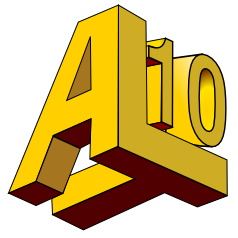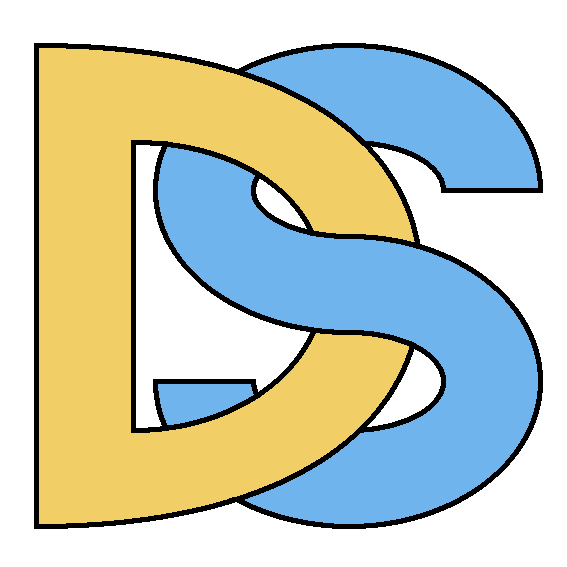
on
Algorithmic Learning Theory
AND

 |
The 21st International Conference on Algorithmic Learning Theory | AND |
 |
The 13th International Conference on Discovery Science |
Canberra, Australia
|
(Thu 7th, 1000-1030)
Toward a classification of finite partial-monitoring games.
Gábor Bartók, Dávid Pál and Csaba Szepesvári
(Fri 8th, 1000-1030)
An Artificial Experimenter for Enzymatic Response Characterisation.
Chris Lovell, Gareth Jones, Steve R. Gunn, and Klaus-Peter Zauner
(Wed 6th, 1430-1545)
An algorithm for iterative selection of blocks and features.
Pierre Alquier
Bayesian active learning using arbitrary binary valued queries.
Liu Yang, Steve Hanneke, and Jaime Carbonell
Approximation stability and boosting.
Wei Gao and Zhi-Hua Zhou
(Wed 6th, 1610-1700)
Online multiple kernel learning: algorithms and mistake bounds.
Rong Jin, Steven Hoi, and Tianbao Yang
An identity for kernel ridge regression.
Fedor Zhdanov and Yuri Kalnishkan
(Thu 7th, 1100-1240)
Distribution-dependent PAC-Bayes Priors.
Guy Lever, François Laviolette, and John Shawe-Taylor
PAC learnability of a concept class under non-atomic measures: a problem by Vidyasagar.
Vladimir Pestov
A PAC-Bayes bound for tailored density estimation.
Matthew Higgs and John Shawe-Taylor
Compressed learning with regular concept.
Jiawei Lv, Jianwen Zhang, Fei Wang, Zheng Wang, and Changshui Zhang
(Thu 7th, 1500-1615)
A lower bound for learning distributions generated by probabilistic automata.
Borja Balle, Jorge Castro, and Ricard Gavaldà
Lower bounds on learning random structures with statistical queries.
Dana Angluin, David Eisenstat, Aryeh Kontorovich, and Lev Reyz
Recursive teaching dimension, learning complexity and maximum classes.
Thorsten Doliwa, Hans Ulrich Simon, and Sandra Zilles
(Thu 7th, 1645-1800)
Switching Investments.
Wouter K. Koolen and Steven de Rooij
Prediction under expert advice under discounted loss.
Alexey Chernov and Fedor Zhdanov
A regularization approach to metrical task systems.
Jacob Abernethy, Peter Bartlett, Niv Buchbinder, and Isabelle Stanton
(Fri 8th, 1100-1240)
Solutions to open questions for non-U-shaped learning with memory limitations.
John Case and Timo Kötzing
Learning without coding.
Samuel Moelius and Sandra Zilles
Learning figures with the Hausdorff metric by fractals.
Mahito Sugiyama, Eiju Hirowatari, Hideki Tsuiki, and Akihiro Yamamoto
Inductive inference of languages from samplings.
Sanjay Jain and Efim Kimber
(Fri 8th, 1500-1615)
Optimality issues of universal greedy agents with static priors.
Laurent Orseau
Consistency of feature Markov processes.
Peter Sunehag and Marcus Hutter
Algorithms for adversarial bandit problems with multiple plays.
Taishi Uchiya, Atsuyoshi Nakamura, and Mineichi Kudo
(Fri 8th, 1645-1800)
A spectral approach for probabilistic grammatical inference of trees.
Raphaël Bailly, François Denis, and Amaury Habrard
PageRank optimization in polynomial time by stochastic shortest path reformulation.
Balázs Csáji, Raphaël Jungers and Vincent Blondel
Inferring social networks from outbreaks.
Dana Angluin, James Aspnes, and Lev Reyzin
(Wed 6th, 1430-1545)
Discovery of Super-Mediators of Information Diffusion in Social Networks.
Kazumi Saito, Masahiro Kimura, Kouzou Ohara, and Hiroshi Motoda
Equation Discovery for Model Identification in Respiratory Mechanics of the Mechanically Ventilated Human Lung.
Steven Ganzert, Josef Guttmann, Daniel Steinmann, and Stefan Kramer
Discovery of Conservation Laws Via Matrix Search.
Oliver Schulte, and Mark S. Dre
(Wed 6th, 1610-1700)
Algorithm for Detecting Significant Locations from Raw GPS Data.
Nobuharu Kami, Nobuyuki Enomoto, Teruyuki Baba, and Takashi Yoshikawa
Adapted Transfer of Distance Measures for Quantitative Structure-Activity Relationships.
Ulrich Rückert, Tobias Girschick, Fabian Buchwald, and Stefan Kramer
(Thu 7th, 1100-1240)
Sentiment Knowledge Discovery in Twitter Streaming Data.
Albert Bifet, and Eibe Frank
Incremental Learning of Cellular Automata for Parallel Recognition of Formal Languages.
Katsuhiko Nakamura, and Keita Imada
Efficient Visualization of Document Streams.
Miha Grčar, Vid Podpečan, Matjaž Juršič, and Nada Lavrač
Incremental Mining of Closed Frequent Subtrees.
Viet Anh Nguyen, and Akihiro Yamamoto
(Thu 7th, 1500-1615)
Subgroup Discovery for Election Analysis: A Case Study in.
Henrik Grosskreutz, Mario Boley, and Maike Krause-Traudes
Gaussian Clusters and Noise: an Approach Based on the Minimum Description Length Principle.
Panu Luosto, Jyrki Kivinen, and Heikki Mannila
Integer Linear Programming Models for Constrained Clustering.
Marianne Mueller, and Stefan Kramer
(Thu 7th, 1645-1800)
NOTE: In Drawing Room
Why Text Segment Classification Based on Part of Speech Feature Selection.
Iulia Nagy, Katsuyuki Tanaka, and Yasuo Ariki
Graph Classification Based on Optimizing Graph Spectra.
Nguyen Duy Vinh, Akihiro Inokuchi, and Takashi Washio
Concept Convergence in Empirical Domains.
Santiago Ontañón, and Enric Plaza
(Fri 8th, 1100-1240)
On Enumerating Frequent Closed Patterns with Key in Multi-Relational Data.
Hirohisa Seki, Yuya Honda, and Shinya Nagano
Mining Class-Correlated Patterns for Sequence Labeling.
Thomas Hopf, and Stefan Kramer
Sparse Substring Pattern Set Discovery using Linear Programming Boosting.
Kazuaki Kashihara, Kohei Hatano, Hideo Bannai, and Masayuki Takeda
Bridging Conjunctive and Disjunctive Search Spaces for Mining a New Concise and Exact Representation of Correlated Patterns.
Nassima Ben Younes, Tarek Hamrouni, and Sadok Ben Yahia
(Fri 8th, 1500-1615)
Topology Preserving SOM with Transductive Confidence Machine.
Bin Tong, ZhiGuang Qin, and Einoshin Suzuki
Speeding Up and Boosting Diverse Density Learning.
James R. Foulds, and Eibe Frank
Exploiting Code Redundancies in ECOC.
Sang-Hyeun Park, Lorenz Weizsäcker, Johannes Fürnkranz
(Fri 8th, 1645-1800)
Kaggle.
Anthony Goldbloom
A Similarity-based Adaptation of Naive Bayes for Label Ranking: Application to the Metalearning Problem of Algorithm Recommendation.
Artur Aiguzhinov, Carlos Soares, and Ana Paula Serra
ESTATE: Strategy for Exploring Labeled Spatial Datasets Using Association Analysis.
Tomasz F. Stepinski, Josue Salazar, Wei Ding, and Denis White